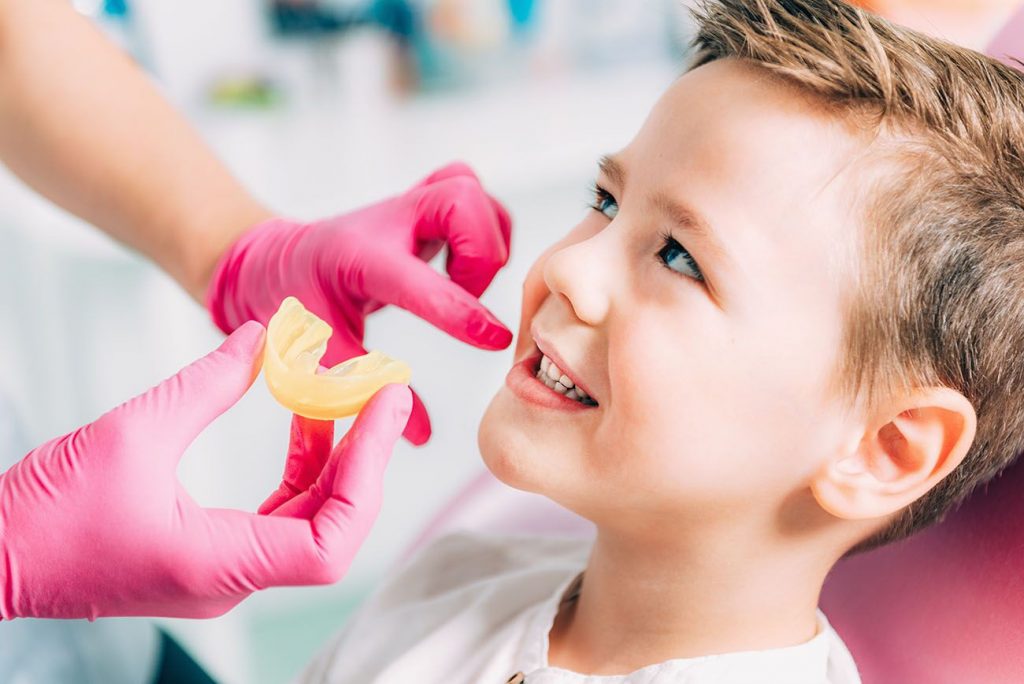Good dental care is essential whether your child is just a baby or they’re already amid childhood. But what’s the best way to ensure that they get the treatment they need? What are the signs of a problem that needs to be addressed? This blog post will answer these and many other questions surrounding kids dentistry and provide tips for parents about meeting their child’s needs.
Baby Tooth Emergencies in Kids Dentistry
If you notice a loose baby tooth, the first thing to do is remove the baby tooth by gently wiggling it back and forth. If that doesn’t work, contact your pediatric dentist in Dubai. The sooner you can get your kid to the dentist’s office, the less likely it is that you’ll need an emergency appointment.
Don’t try to pull out a baby tooth with your fingers; this could cause damage to the permanent tooth beneath it. If you need to remove the tooth, don’t pull too hard. And be sure to rinse your child’s mouth with warm water after removing the tooth and then apply a fluoride gel to help prevent decay.
Oral Health for Kids
With good oral hygiene, your child has a better chance of developing healthy teeth and gums, says Dr Robert J. Dempsey Jr., DDS, president of Nationwide Children’s Dental Network (NCD), which operates over 30 pediatric and family practices across the U.S.
“The goal is for your child to develop strong, healthy teeth and gums throughout childhood and adulthood,” Dr Dempsey says.
“If you’re using a toothbrush and toothpaste made for children, you have to avoid hard bristles, as this can be abrasive to the gums. For this, toothbrushes with soft nylon bristles are best. Toothpaste for children should have at most 0.05% or even no fluoride. It’s best to use toothpaste made specifically for children, as any fluoride can harm the teeth.”
Trimming Teeth With Baby Bottle Toothbrushes
If your child is still in the process of learning how to brush her teeth, this is a great time to let her try out a baby bottle toothbrush, says Dr Dempsey.
“Many pediatric dentists will provide baby bottles with toothbrushes attached for their patients. This is a good way for children to learn about brushing teeth and to see that fresh milk tastes good.”
Parents’ Role in Kids’ Dental Care
Helping children learn about good dental hygiene is a process that continues long after kids start brushing their teeth. It’s the parent’s role to teach kids the details of proper dental care, such as brushing, floss, and using mouthwash. And for your child to develop healthy habits for life, it’s essential to be consistent with these practices.
Most Kids Get Cavities
Most kids in the U.S, including children as young as 1-year-old, will have at least one cavity by reaching adulthood. What’s more, studies show that cavities are most likely to develop in the lower back molars, a region that isn’t easy for parents or kids to access.
Parents can help reduce the risk of cavities by encouraging kids to brush at least twice a day and flossing at least once daily. Floss picks are also a great option for low-risk children.
With proper dental care, the risk of developing a cavity is greatly reduced.
Signs of a Problem
In addition to ensuring that your kids brush their teeth regularly, you’ll want to keep an eye out for signs of dental problems. Problems with biting, chewing, and swallowing are often signs that something’s wrong with a child’s mouth.
Other warning signs include an increase in appetite (especially sweets), drooling, bad breath, and swollen gums. And if the problem is severe enough, you may notice the teeth themselves changing shape or colouration.
However, common oral health problems in children include:
- Flossing unnecessary teeth (usually back molars) that are worn down by chewing, as well as the teeth behind them.
- Dry mouth (salivary glands that don’t produce enough saliva may be part of the problem). Using toothpaste without fluoride and drinking too much water can worsen this problem.
- Stained or discolored teeth.
- Sore and inflamed gums.
- Red or swollen roots.
- Dental decay (cavities)
Dentistry and Pediatrics
The American Academy of Pediatrics (AAP) recommends that children get four routine dental visits per year: at 6 months, at one year, around age 3 or 4, and age 5.
Dental care is particularly important for babies and kids because their mouths are constantly developing. Teeth that aren’t properly cared for may have lasting effects on a child’s physical and emotional health, making it important to develop good habits early on.
AAP also recommends that children continue to visit the dentist at least once a year until age 6, though most kids don’t visit the dentist frequently until they’re adults.
Conclusion
Regarding kids’ dental care, prevention and education are the best tools for ensuring your child’s long-term oral health. As you learn about good dental care for children, be sure to discuss the risks and benefits of any procedures with pediatric dentists in Dubai. Furthermore, if you are looking for the best pediatric dentist for your little one, look no further than Dr Yasmin. She is one of the best kids dentists in Dubai and is known for her expertise and perfection in kids dentistry.





More Stories
Chronic Cardio: Are You Wasting Your Time?
Top 13 Incredible Health Benefits of Avocado!
Best CrossFit Workouts to Improve Your Fitness